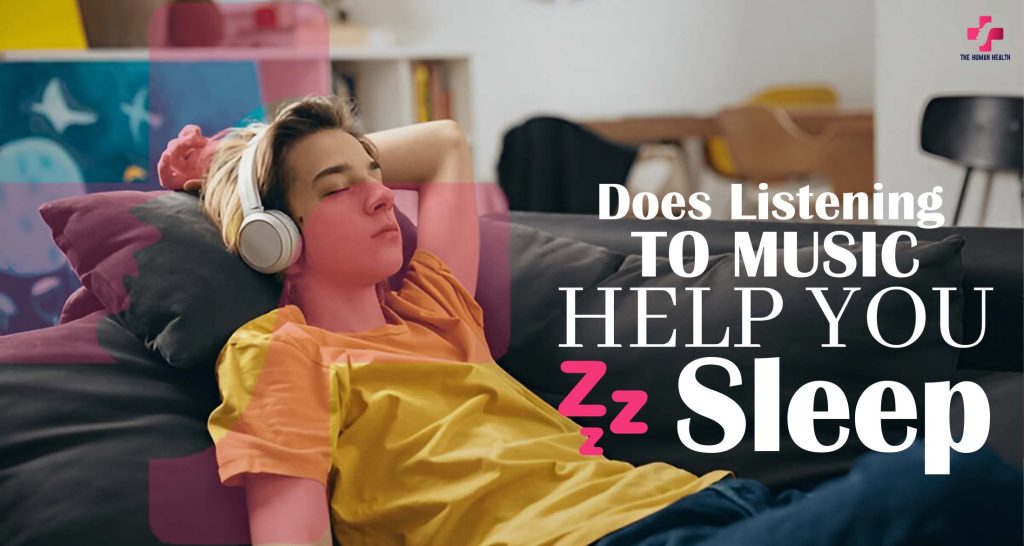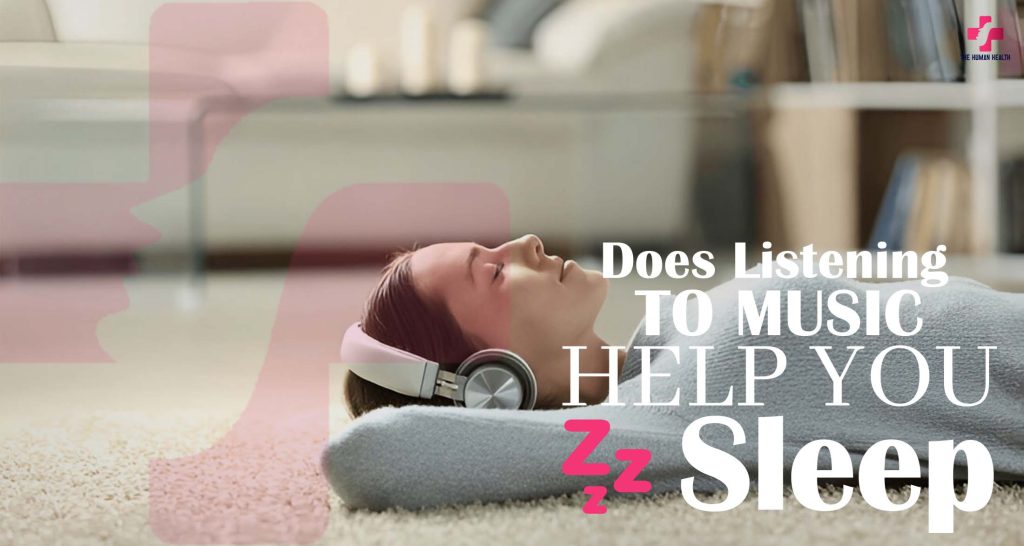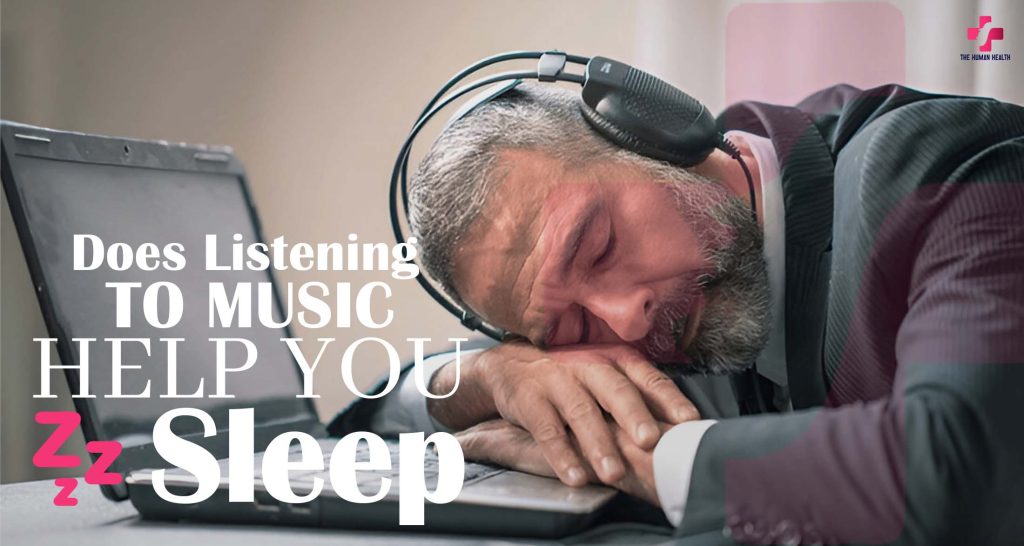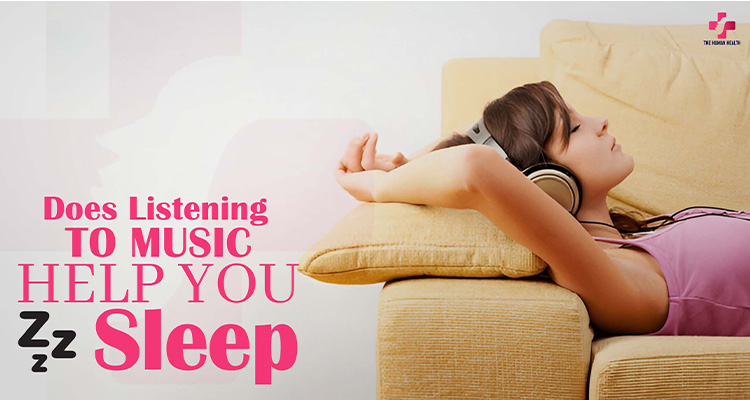Does Listening to Music Help You Sleep?
Introduction
You know that feeling when you’re lying in bed, staring at the ceiling, and your brain just won’t shut off? Maybe you’ve tried everything—counting sheep, sipping chamomile tea, even convincing yourself that you’re definitely tired. But then, you press play on some soft, soothing music, and suddenly, sleep doesn’t seem so far away.
Does listening to music help you sleep? For many people, the answer is yes. Science shows that the right music can slow your heart rate, relax your muscles, and ease you into a restful state. In fact, millions of people listen to music to fall asleep every night. But is it actually better than sleeping in silence? And what kind of music is best for drifting off?
In this article, we’ll dive into the research, explore the best sleep music, and settle the debate on whether music really helps—or if it’s just another bedtime habit. So, should you hit play before bed? Let’s find out.
The Science Behind Music and Sleep
Ever noticed how a soft song can make you feel calm? That’s because music affects your brain and body in big ways. The right sounds help you relax, making it easier to drift off.
How Music Affects Your Brain
Music connects to the part of your brain that controls emotions. Slow songs can boost dopamine, a chemical that makes you feel good. At the same time, music lowers stress hormones, helping you unwind.
How Sound Helps You Relax
Some sounds work better than others for sleep. Low, gentle tones—like soft piano or ocean waves—tell your brain it’s time to rest. Some people also use binaural beats—two slightly different sounds played in each ear—to help their minds slow down. You’ve probably seen playlists with “calming music to help you sleep” or “free sleeping music.” These sounds can really work!
How Music Slows Your Breathing
When you listen to slow music, your body reacts. Your heart rate drops. Your breathing gets deeper. This is because relaxing songs activate your body’s “rest mode.” That’s why sleep music for adults often has a slow beat—about 60 beats per minute. It’s like a natural lullaby, helping your body know it’s time for bed.
So, if you struggle to sleep, try some soft tunes. Science says it might just be the push your brain needs!

How Can Music Help Me Sleep?
Ever had a night where your brain just won’t slow down? Stress, worries, or random thoughts keep you tossing and turning. That’s where music comes in. It’s not just background noise—it’s a signal that tells your brain to relax.
Music Reduces Stress
Listening to soft music before bed helps lower cortisol, the stress hormone. This makes it easier to unwind and fall asleep. Slow, gentle tunes—like classical music or soft piano—can calm your mind, just like deep breathing or meditation. If you’re wondering, how can music help me sleep?—this is a big reason why.
Music Helps You Sleep Better
Music doesn’t just help you fall asleep—it can improve sleep quality too. Slow rhythms guide your body into deep sleep, where real rest happens. Many people listen to music to fall asleep
every night because it helps them relax. Sleep music for adults often includes soft melodies, nature sounds, or ambient tones, all designed to help your brain settle down.
Music Creates a Peaceful Atmosphere
Your sleep setting matters, and the right music can transform it. Whether it’s free sleeping music from an app or a playlist of calming sounds, playing music for sleep can block out noise and signal bedtime. Some people can’t fall asleep without music because their brain connects it to rest.
So, if you struggle to wind down, try some calming music to help you sleep. It might be just what you need to drift off easily!
How Many People Listen to Music to Fall Asleep?
Ever wonder how many people need music to sleep? A lot! Research says over half of adults play music at night. It helps them relax, unwind, and drift off faster.
What Kind of Music Works Best?
Not all songs are good for sleep. Soft, slow tunes work best. Many people love classical, jazz, or nature sounds. Others prefer lo-fi beats or gentle piano. If you’ve searched for free sleeping music or sleep music for adults, you know how many choices there are!
Why Do People Sleep Better With Music?
Music blocks noise, lowers stress, and signals bedtime. Some can’t fall asleep without music because their brain links it to rest. Others use it to drown out city sounds or a snoring partner.
If you have trouble sleeping, try some calming music to help you sleep. It could be just what you need!

What Kind of Music is Best for Sleeping?
Not all music works for sleep. Some songs keep your brain active, while others help you relax. The best sleep music is slow, soft, and calming.
Classical, Jazz, or Nature Sounds?
Many people find classical music soothing. The gentle melodies and slow rhythms can ease your mind. Jazz music can also help you sleep, especially smooth jazz with soft instrumentals. Some prefer white noise or nature sounds, like ocean waves or rainfall. These sounds mask background noise and create a peaceful sleep environment.
Lyrics or Instrumental?
Ever noticed how some songs make you think too much? Lyrics can keep your brain engaged, making it harder to relax. That’s why many choose instrumental tracks—they help you drift off without distraction. If you love music but need to sleep, try playlists with soft piano, ambient sounds, or acoustic guitar.
If you struggle to fall asleep, experiment with different sounds. Whether it’s calming music to help you sleep or free sleeping music, the right playlist can make bedtime much easier!
Is It Better to Sleep With Music or Silence?
Some people need music to fall asleep. Others prefer silence. So, which one is better?
Why Music Helps
Music can make falling asleep easier. It blocks out noise—like traffic or a snoring partner. It also helps your body relax by slowing your heart rate. Many people listen to music while sleeping because it creates a bedtime habit. Over time, your brain links the sounds to sleep, making it easier to drift off.
Why Silence Works
But for some, silence is better. Even soft music can keep your brain active. If you wake up easily, sound—even relaxing sleep music—might disturb you. So, is it better to sleep without noise? If small sounds wake you up, total silence might help you sleep deeper.
What’s Best for You?
There’s no right answer. If music helps, use it! Choose soft, slow tunes. But if it keeps you awake, try sleeping in silence. Test both and see what works best for you. In the end, the goal is simple—a good night’s rest.

Is Falling Asleep With AirPods Bad?
Ever fall asleep with your AirPods in, only to wake up with sore ears—or worse, one missing in your sheets? If you love listening to music while sleeping, AirPods might seem perfect. But are they really safe for bedtime?
Why Sleeping With AirPods Isn’t Great
Let’s be honest—wearing AirPods to bed isn’t ideal. First, they’re uncomfortable. If you sleep on your side, they press into your ears. Ouch.
Then there’s the battery issue. Ever drift off to calming music to help you sleep, only to wake up to loud notifications? Plus, Bluetooth exposure all night? Not the best idea.
And don’t forget the risk of losing them. If you’ve ever spent your morning searching under pillows, you know the struggle.
Better Ways to Play Music for Sleeping
So, how can you enjoy relaxing sleep music without AirPod problems? Try these instead:
- Sleep Headphones – Soft and flat, made for bedtime. No ear pain!
- Pillow Speakers – Slip one under your pillow and drift off.
- Smart Speakers – Play music for sleeping and set a timer to turn it off.
If you can’t sleep without music, these options work better. Your ears—and your AirPods—will thank you!
Does Music Help You Study?
Ever played music while studying and felt super focused? Or did you end up singing instead? Music can help, but it works differently for studying than for sleep.
Music for Sleep vs. Music for Focus
Sleep music is slow and calming. It helps you relax and drift off. But for studying, you need something that keeps you alert but not distracted.
That’s why lyrics can be a problem—they steal your attention. Instead, try instrumental music, lo-fi beats, or classical tunes. These create background noise that helps you stay on task.
Can You Learn While Sleeping?
Wouldn’t it be great if you could listen to a lecture in your sleep and wake up smarter? Sadly, that’s not how the brain works. You don’t absorb new information while asleep.
But there’s a trick! If you study first and then listen to the same material before bed, your brain may store it better. While you can’t “study while sleeping,” music can still boost your learning—just use the right kind at the right time!
Why Don’t We Remember Falling Asleep?
Ever had a night where you’re wide awake, staring at the ceiling, waiting to fall asleep? Then—boom!—it’s morning, and you have no idea when you drifted off. Why does that happen?
Your Brain Slowly Powers Down
Falling asleep isn’t like flipping a switch. It’s more like a phone screen slowly dimming before turning off. Your brain moves through different stages, shifting from awake to asleep so smoothly that you don’t even notice. The thalamus, a part of your brain, controls this process. As you drift off, it blocks outside sounds and distractions, making everything fade away. That’s why you don’t remember the exact moment you fell asleep.
How Music Helps You Sleep
If you play music for sleeping, it can help your brain relax. Slow, calming sounds tell your body it’s time to rest. Does listening to music help you sleep? For many people, yes! The gentle rhythm slows your breathing and heart rate, making it easier to drift off.
Why Some People Can’t Sleep Without Music
Ever wonder, why can’t I go to sleep without music? Your brain gets used to listening to music while sleeping. Over time, it connects those sounds to bedtime. That’s why silence can feel strange if you’re used to sleep music for adults.
So, while you may never remember the exact second you fall asleep, the right calming music to help you sleep can make it happen faster—without you even realizing it!

Final Thoughts: Should You Use Music for Sleep?
So, does listening to music help you sleep? For many, yes! The right music calms your mind, slows your breathing, and helps you drift off. If your thoughts race at night, playing music for sleeping might be just what you need.
But not everyone sleeps better with sound. Is it better to sleep without noise? If music distracts you or wakes you up, silence may be the way to go.
If you enjoy listening to music while sleeping, pick something soft and slow. What kind of music is best for sleeping? Try classical, jazz, nature sounds, or gentle instrumentals. Avoid fast beats or songs with lyrics that keep your brain active. And if you’re wondering, is falling asleep with AirPods bad?—it’s not the best idea. Use a speaker or sleep-friendly headphones instead.
Sleep is different for everyone. Whether you need calming music to help you sleep or total quiet, choose what helps you wake up feeling refreshed. Try different sounds, see what works, and enjoy a good night’s rest!
FAQs: Does Listening to Music Help You Sleep?
- Can music help you fall asleep faster?
Yes! Music helps calm your mind and slow your heart rate, making it easier to fall asleep quickly. - What music works best for sleep?
Slow, gentle music like classical, jazz, or nature sounds is perfect. Instrumentals without lyrics help you relax more. - Is it better to sleep with music or without it?
It depends. Music helps block out noise and sets the mood for sleep, but some people sleep better in complete silence. - Does music improve sleep quality?
Yes, music helps you relax and enter deeper sleep, which makes your rest more refreshing. - What are binaural beats, and do they help sleep?
Binaural beats are two different sounds played in each ear. They can help calm your brain and prepare you for sleep. - Is it safe to sleep with AirPods in?
It’s not ideal. AirPods can hurt your ears, and there are better options like sleep headphones or pillow speakers. - Can music reduce stress before bed?
Yes, music lowers stress hormones, making it easier to relax before sleep.

Authorize Advisor
Michael Breus, PhD
Sleep Doctor
Michael J. Breus, Ph.D., is a Clinical Psychologist and both a Diplomate of the American Board of Sleep Medicine and a Fellow of The American Academy of Sleep Medicine. He was one of the youngest people to have passed the Board at age 31 and, with a specialty in Sleep Disorders, is one of
only 168 psychologists in the world with his credentials and distinction. Dr. Breus is on the clinical advisory board of The Dr. Oz Show and is a regular contributor on the show
Call : +1 (844)757-9355
Email : contact@sleepdoctor.com
Does Listening to Music Help You Sleep? Does Listening to Music Help You Sleep? Does Listening to Music Help You Sleep? Does Listening to Music Help You Sleep? Does Listening to Music Help You Sleep? Does Listening to Music Help You Sleep? Does Listening to Music Help You Sleep?
Does Listening to Music Help You Sleep? Does Listening to Music Help You Sleep? Does Listening to Music Help You Sleep? Does Listening to Music Help You Sleep? Does Listening to Music Help You Sleep? Does Listening to Music Help You Sleep? Does Listening to Music Help You Sleep? Does Listening to Music Help You Sleep? Does Listening to Music Help You Sleep? Does Listening to Music Help You Sleep? Does Listening to Music Help You Sleep? Does Listening to Music Help You Sleep? Does Listening to Music Help You Sleep? Does Listening to Music Help You Sleep? Does Listening to Music Help You Sleep?


